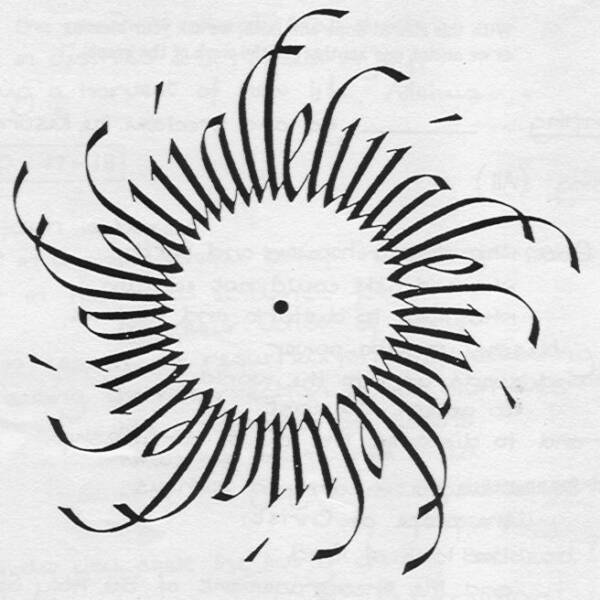At the Easter vigil, according to Father Lambro (see the Burying the Alleluia post), "as the sun was rising, the congregation went back to the graveyard, where the coffin was exhumed. It was carried back to the church, where the abbot took the scroll out and intoned the 'Alleluia' - signaling the great joy that Chr ist had risen from the dead," he said.
ist had risen from the dead," he said.
According to Diana Macalintal, writing in the Feb. 2004 issue of Eucharistic Ministries, "the ritual can be traced back to the Middle Ages, when the practice of 'burying the Alleluia' became popular on the eve of Septuagesima (Latin for "70") Sunday, the third Sunday before Lent. (Eucharistic Ministries 239, Feb. 2004). This lay-led ritual included a solemn procession to the church cemetery with a plaque, scroll, banner or even a coffin inscribed with the word 'Alleluia.' The 'Alleluia' was then laid to rest with the hope of its resurrection on Easter Sunday."
We bid a temporary farewell to the beloved "Alleluia" at the beginning of the journey in order that we can truly enter into the spirit of the Easter season as the three-fold "Alleluia" bursts forth into glory heralding the resurrection of Christ at the Easter Vigil.
According to Benedictine Father Aelred Rosser, "'Burying the Alleluia' makes the connection between eggs (the Alleluia Egg) and Easter, which I always tried to make in Easter sermons. The Easter egg hunt is, among other things, a hunt for the Alleluia we hid or buried at vespers before Ash Wednesday."
"By easy association," he said, "it's acting out of the Resurrection narrative in which Mary Magdalene goes a-hunting for the hidden/risen Christ and says: 'They have taken away my Lord, and I know not where they have laid him.' We 'Bury the Alleluia'/hide the eggs precisely because we know we're going to dig it up/find them again. It's a profession of faith in resurrection."
But the monk added, "There's nothing particularly 'monastic' about the practice in its origins or its observance - except, perhaps, in the sense that it was preserved in monasteries even when it fell into disuse."
3 comments:
Oh, cool. This is very interesting! I'd never heard of this old tradition, but the connection makes good sense. You're always teaching me something new, Peggy. &:o)
Wow. I really found this interesting. Thanks again for teaching me something new about my faith.
God bless.
Happy Easter to you! God Bless!
Post a Comment